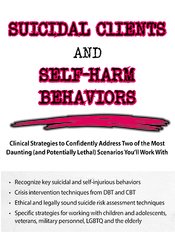Enrol in an online course today for flexible, self-paced learning—no fixed schedule required. Plus, enjoy lifetime access to course materials for convenient revisiting.


-
Online Course
 Frank Anderson’s Master Class in Internal Family Systems Therapy£129.98Frank Anderson’s Master Class in Internal Family Systems TherapyFrank Anderson’s Master Class in Internal Family Systems Therapy£129.98
Frank Anderson’s Master Class in Internal Family Systems Therapy£129.98Frank Anderson’s Master Class in Internal Family Systems TherapyFrank Anderson’s Master Class in Internal Family Systems Therapy£129.98 -
Live Events
In-Person or Online— learn with others, ask questions, and use your attendance to earn your CPD.
Online Course Dr Laurel Parnell’s Attachment-Focused EMDR Skills and Supervision Group£495.00£1,590.00 valueDr Laurel Parnell’s Attachment-Focused EMDR Skills and Supervision Group14 Jan, 2025Dr Laurel Parnell’s Attachment-Focused EMDR Skills and Supervision Group£495.00£1,590.00 value
Dr Laurel Parnell’s Attachment-Focused EMDR Skills and Supervision Group£495.00£1,590.00 valueDr Laurel Parnell’s Attachment-Focused EMDR Skills and Supervision Group14 Jan, 2025Dr Laurel Parnell’s Attachment-Focused EMDR Skills and Supervision Group£495.00£1,590.00 value -
-
Books
Discover the transformative insights from renowned authors like Judith Matz, Amy Pershing, and Christy Harrison. Explore their works to gain a deeper understanding of mental health, and more.
Book Written by three leading experts in the fields of disordered eating, mental health, and trauma-informed care, this book will become your go-to guide for learning how to reject diet culture, heal your£18.99Written by three leading experts in the fields of disordered eating, mental health, and trauma-informed care, this book will become your go-to guide for learning how to reject diet culture, heal yourWritten by three leading experts in the fields of disordered eating, mental health, and trauma-informed care, this book will become your go-to guide for learning how to reject diet culture, heal your£18.99
Written by three leading experts in the fields of disordered eating, mental health, and trauma-informed care, this book will become your go-to guide for learning how to reject diet culture, heal your£18.99Written by three leading experts in the fields of disordered eating, mental health, and trauma-informed care, this book will become your go-to guide for learning how to reject diet culture, heal yourWritten by three leading experts in the fields of disordered eating, mental health, and trauma-informed care, this book will become your go-to guide for learning how to reject diet culture, heal your£18.99 -
Free Resources
Get expert guidance, practical workbooks, online courses, and more.
Online Course This workshop provides crucial insights into the intersection of AI and therapy, equipping therapists with the knowledge to navigate this new landscape confidently.£0.00£149.00 valueThis workshop provides crucial insights into the intersection of AI and therapy, equipping therapists with the knowledge to navigate this new landscape confidently.7 Nov, 2024This workshop provides crucial insights into the intersection of AI and therapy, equipping therapists with the knowledge to navigate this new landscape confidently.£0.00£149.00 value
This workshop provides crucial insights into the intersection of AI and therapy, equipping therapists with the knowledge to navigate this new landscape confidently.£0.00£149.00 valueThis workshop provides crucial insights into the intersection of AI and therapy, equipping therapists with the knowledge to navigate this new landscape confidently.7 Nov, 2024This workshop provides crucial insights into the intersection of AI and therapy, equipping therapists with the knowledge to navigate this new landscape confidently.£0.00£149.00 value -
Staff Training
We specialise in meeting the unique training needs of individual teams, bringing staff members together to benefit from the latest therapeutic knowledge, insights and skills. Access a wide range of trainings from the latest trauma treatment modalities, child and adolescent trainings and many more.
×














